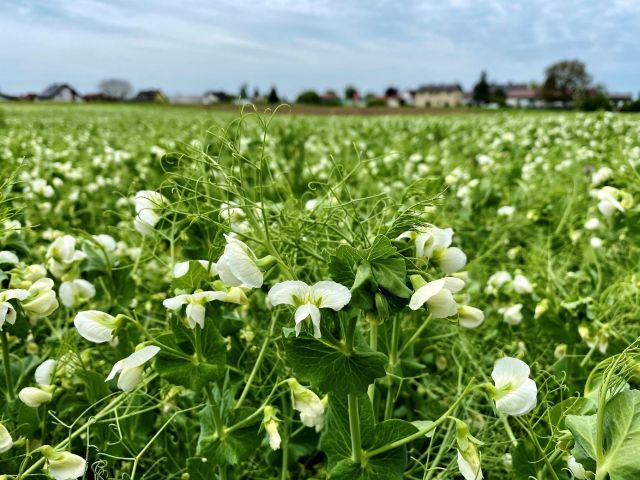Duration: 2020-2024
The different forms of sulfur fertilizers in particular should be tested in different crops in order to provide practical recommendations. When it comes to arable crops, the focus is on winter grain legumes, as they are not yet widespread and are relatively new in Austria. They can form part of the strategy against droughts influenced by climate change. Multi-year trial results then support cultivation recommendations for agricultural practice. The combination of phosphorus and sulfur fertilizers in fodder legumes is intended to investigate a possible positive, mutual influence of both nutrients.
Protein for humans and animals
The cultivation of legumes plays an extremely important role in organic farming for producing high-quality food and feed and therefore also guarantees a valuable source of protein in human and animal nutrition. In crop rotation - especially in pure arable farms - they make a significant and important contribution to improving the soil, building up humus, supplying nutrients and also regulating weeds. A balanced supply of phosphorus and sulfur to the plants ensures good nitrogen fixation and utilization as well as rapid and uniform growth for appropriate quality, ingredients and yield.
The results from the tests are intended to provide recommendations for companies. This is about optimizing the material balances and thus the long-term stabilization of plant yields in grassland and fields on organic land.
The results will be used to develop instructions for action, which will be made available to companies directly via publications, lectures, seminars and workshops.
Nutrient optimization in the organic farming system
The main goals of production in organic farming are nutrient cycles that are as closed as possible and active soil life. In order to achieve these goals, the farm's own manure is the most valuable basis and therefore an indispensable part of the system. Recently it has become increasingly clear that individual nutrient balancing on organic farms is also important. Sustainability requires that nutrients exported via the products must return to the respective areas in a soil-friendly form. It is milk and meat that leave the grassland farm as well as the market crops on the arable farm. The nutrients contained and exported represent a not insignificant quantity. Since both sulfur and phosphorus, along with other minerals and trace elements, are essential for optimal legume growth, these two nutrients should be given more attention, especially in organic farming. This can also be an important component for promoting legumes and thus also for optimizing the N balance and protein supply. After all, legumes are the central crop in an organic crop rotation.
The mineral supplementation of individual nutrients in grassland, field forage stands and grain legumes is the central research question in this project.









